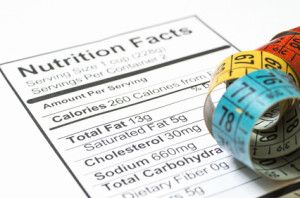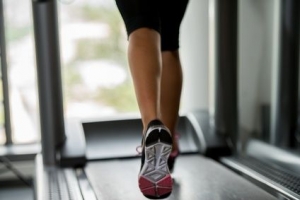
Weight loss can be a tough and frustrating process. That’s why we embrace the concept of calories. It makes us feel like we have some control over our weight loss. Calories are mathematical. They’re scientific. But, unfortunately our bodies don’t work like a mathematical equation. If you’ve ever been a meticulous calorie counter, you know it’s true. At some point, your ‘caloric deficit’ has NOT been reflected in the number on the scale.
There are a number of reasons why counting calories just doesn’t work all that well. There are many factors affecting weight loss that have nothing to do with calories. For one, weight loss is greatly affected by a host of hormones in our bodies that relate to stress levels, hunger signals and safety mechanisms that evolved to prevent starvation.
Major stress in our lives causes cortisol levels to raise too high, causing weight gain or prohibiting weight loss. Hunger hormones leptin and ghrelin are affected by many different factors, including stress, amount of sleep, and amount of sugars in the diet. Finally, calorie restriction (eating too few calories) can cause the body to respond by storing body fat, instead of burning it. Essentially it’s thinking, “Seems like food is scarce right now. Let’s store fat for energy to use later on.”
Another reason why calorie counting doesn’t work very well is the inaccuracy of estimating both calories eaten and calories burned through exercise. Let’s take a look at some of the reasons why accurately counting calories is so difficult:
1) Inaccurate Portion Estimates
It can be very difficult to estimate the calories we eat. For those of us without a food scale, it can be a guess at best, a mere estimate of portion size. Did you actually get out the deck of cards to see if your portion of meat matched its size?
To get closer to a correct estimate, we’d have to weigh and measure out all of our food, which some people try to do. Even so, exactly how many calories of the oil in the pan got absorbed by the food you ate? Exactly how many ounces of cottage cheese was that? What size was that banana? What happens when you go out to eat to a restaurant where calorie counts aren’t available? Questions like these make the brain swirl! We can estimate, but estimates over time can add up to a lot of inaccuracy. And who really wants to live their lives obsessing over every last calorie?

Recent studies have begun to show that the traditional scientific method of measuring calories in foods may be fairly inaccurate, both overestimating and underestimating calorie counts for different foods. This method doesn’t take into account several important factors that play into how many calories a food really has, including whether the food is cooked, the energy our body expends breaking down tough-to-digest foods, and even the quantity and type of gut bacteria we have.
Cooking and processing foods both break down their cell structures and proteins, making more energy available and thus increasing the number of calories in these foods. If a food is difficult to chew or digest, we may burn some calories in the digestion process, thus decreasing the overall calories we absorb. Finally, our gut is full of various species of bacteria, some of which consume nutrients (yep, they actually eat some of the calories) and some of which break down foods to release more nutrients (these ones help us absorb more calories). The number and types of these bacteria vary widely from person to person, but do have some effect on the number of calories we actually absorb.
Many dieters may not realize that the calorie counts at popular restaurant chains may be also very inaccurate. A 2011 study by Tufts University, showed that 20% of foods tested at 42 restaurants were highly inaccurate, containing at least 100 more calories than what was stated on the menu.

Using the calorie counters on the cardio machines at the gym to measure your calorie burn? While it’s gratifying to see that big number of calories burned up on the screen after your workout, these calorie counts are not to be trusted. Even when you enter your gender, weight and age, these estimates can be off by dozens or even well over 100 calories per workout.
The calorie burn calculators by activity type on the internet are also fairly inaccurate. Your actual calorie burn during exercise depends greatly on your fitness level, amount of muscle in your body, your level of physical exertion, whether you are doing intervals and many other factors.
4) BMR is Inaccurate
For calorie counting folks, one of the important numbers in their weight loss equation is BMR, or Basal Metabolic Rate. This is the amount of calories you burn just by existing throughout the day, and includes calories burned while sitting or sleeping.
Again, these are just rough estimates and don’t measure the smaller bursts of activity you may participate in throughout the day, or depending on the calculator, they may overestimate your BMR if you’re someone with a very sedentary job. How many calories you burn throughout the day is greatly affected by several factors including whether you exercise or not, the amount of muscle you have, your diet, hormones and stress…anything that affects metabolism will affect BMR.
As you can see, all of the figures in your ‘calories in, calories out’ equation are highly variable. Makes it tough to know how many calories you’re really taking in and burning!
So if counting calories isn’t they key to weight loss….what is? Although counting calories doesn’t work so well, healthy nutrition and a strong exercise program are absolutely critical to weight loss. You must make a commitment to change your lifestyle, but it doesn’t have to get in the way of living life!
Athlean-XX for Women can help you achieve this lifestyle makeover, no calorie counting required! Our nutrition plan is flexible, providing 90 days of meal plans that you can follow, or allowing you to simply create your own meals from our lists of healthy foods. We actually encourage you to eat more frequently – 5 to 6 times per day!
Forget about those long 2 hour gym sessions, too. With Athlean-XX for Women, just 30 minutes of your time is enough to produce the results you want to see: weight loss and a toned athletic body. Our workouts are based on circuit strength training, which allows you to get both strength and heart-pumping cardio in one shot! The best part is that they can be done either at home or at the gym – whatever works best for you. Eat more, work out less and get lean and toned with Athlean-XX for Women!
And finally, if you’d like to stay up to date with the AthleanXXforWomen.com blog, then please like us on Facebook, follow us on Twitter and follow us on Pinterest.
P.S. We are a growing community dedicated to and passionate about realistic fitness and nutrition for REAL women. If you enjoyed this post please feel free to share on Facebook, Twitter and Pinterest. It would be incredibly appreciated.




